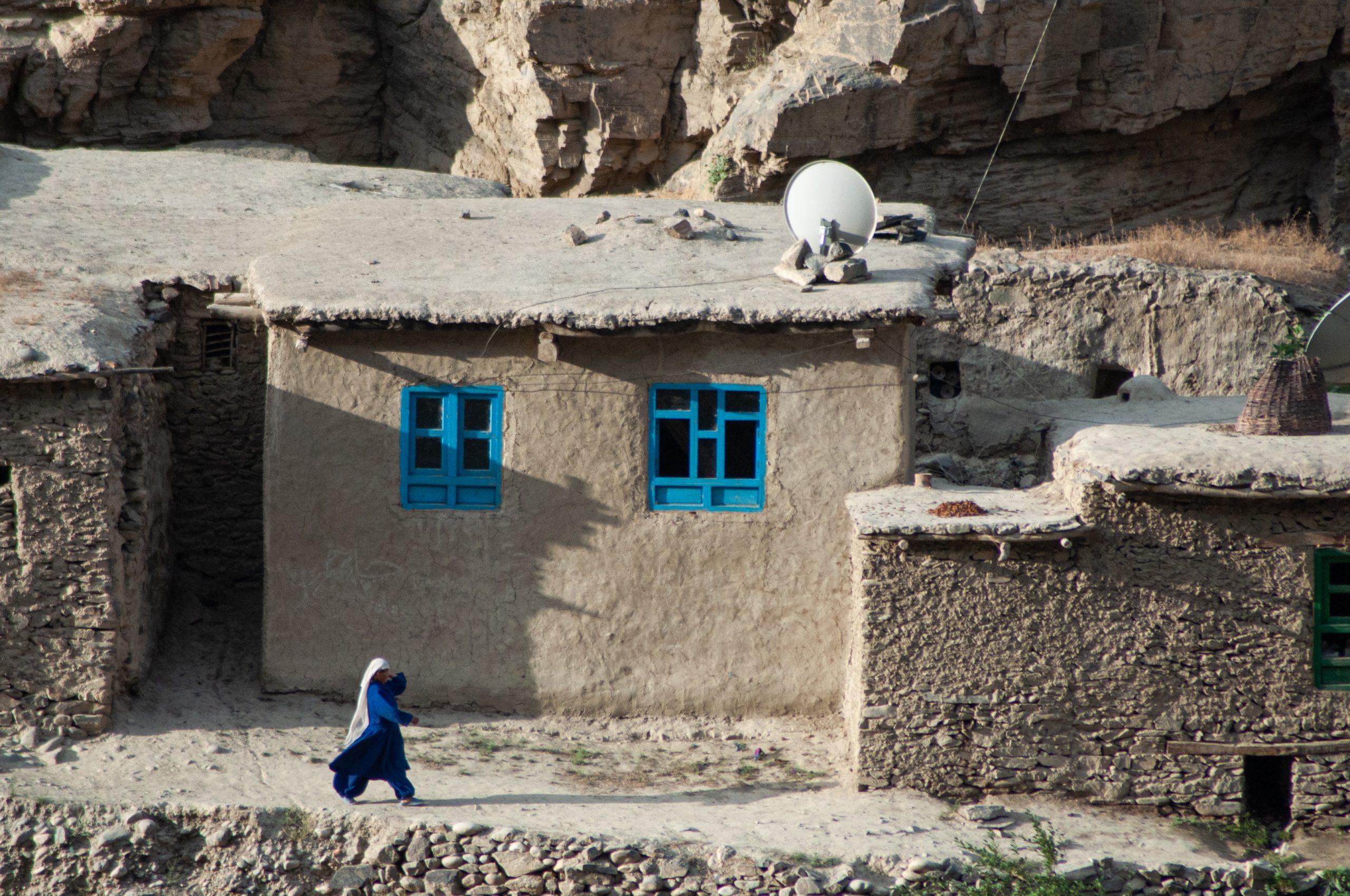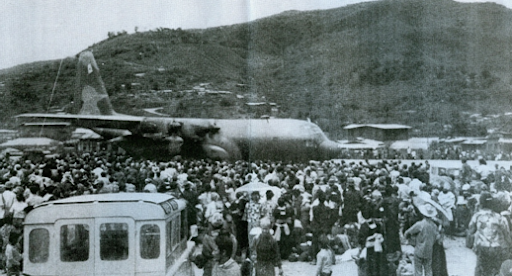If I were to say to you, “God is good…”
What would your response be? If you have been around church long enough you would respond with, “All the time.”
Then the opposite would occur where I would say, “And all the time…”
You would then reply with, “God is good.”
Many Christians are taught this greeting to instill in us the belief that God is truly a good God. Yet, when we step back into our world of family, work, and the community we live in, do we really believe that it’s true? When our family and friends are suffering and even dying from Covid-19, is God good? When we are on a tight budget and we get called into a meeting to hear the words, “Sorry, we have to let you go,” is God good? What about living in a war-torn country only to hear that the side that was supposed to help is now abandoning you? Is God good?
God doesn’t seem good when you are a people group that is recruited to fight for a nation that leaves with no return in sight. My people group, the Hmong people, were recruited by the United States CIA to fight a secret war in Laos during the Vietnam War. When the United States left Southeast Asia, the Hmong people were left in disarray. Some were granted asylum to America. Others fled across the Mekong River to Thailand to become refugees. Many were left in Laos to fight for their lives with no allies.
God doesn’t seem good as I watch the news about what is happening in Afghanistan. I can’t help but be reminded of my own people’s history. Many Afghans who have helped America flooded the airport to try to get on one of the last flights out of the country. Children were handed over the wall at Kabul airport so they could escape what is thought to be eventual death. Those who have helped America now fear that they too will be killed. Christians are being threatened with death. It’s all so hard to take in. It strikes so close to home.

If anyone has had a tough life, Joseph is living proof (Gen. 37-50). He was betrayed and sold into slavery by his brothers. By working diligently, his life starts to turn for the better. But it’s during that time that he then gets accused of a rape he never committed and is thrown in jail. Where is the goodness of God?
Throughout history we have seen these horrific scenes repeat themselves. Winston Churchill famously paraphrased the philosopher George Santayana when he said, “Those who fail to learn from history are condemned to repeat it.”
But perhaps being condemned to repeat history can be a blessing in disguise—a blessing we may not be able to appreciate until after we see the repetition.
Many Hmong people were granted asylum to America after the Vietnam War. They left all that they knew to start a new life in a land they have never seen, touched, or smelled. Almost 50 years have passed, and only now can we look back and ask the question—is God good?
The Hmong have become a vibrant community here in America. Hmong Americans are now doctors, lawyers, teachers, and most recently an Olympic gold medalist. In a matter of just under 50 years, the Hmong have gone from zero churches in America to hundreds of churches. Perhaps God is good after all.
Joseph went from being sold to slave traders to become the second highest in command in Egypt. He is even eventually reunited with his brothers. Being in such a high position he could have easily carried out vengeance for what they did to him. Yet, instead of carrying out his wrath upon his brothers, he amazingly said, “As for you, you meant evil against me, but God meant it for good.” (Gen 50:20 ESV) Perhaps God is good after all.
Being condemned to repeat history can be great when we decide to repeat the history that God has chosen to use to redeem people and glorify His name. If we want to repeat history for the Afghan people, we must repeat what God did for the Hmong people. Here are three powerful things we can do to assist the Afghan people.
1. Pray for the people of Afghanistan
Many people prayed for the Hmong people after the Vietnam War. We must also do this for the Afghan people. Some things we can pray for are:
- Pray for the safety and protection of all the people in Afghanistan.
- Pray for the salvation of the Afghan people.
- Pray for strength and protection of Afghan Christians.
- Pray for humanitarian aid for the Afghan people.
2. Assist those who are in need
Many people helped the Hmong people after the Vietnam war. We were not able to succeed without the help of others. “Whatever you did for one of the least of these brothers of mine, you did for me” (Matthew 25:40 NIV). Here are some practical tips for helping Afghans:
- Do your research and give to organizations you trust to help those in Afghanistan.
- Do your research and help the Afghans that are being resettled in America. Many of these people may be resettling in your own community. Find out how you can best help them settle into their new home. We can best reach them with the Gospel when we truly care for them and not only see them as another person to evangelize. Loving our neighbor is not just a means to an end. According to the State Department figures, the states that have received the most special immigrants from Afghanistan since October 2020 are California, Utah, Texas, Virginia, and Washington.
3. Pray for the Afghan church and help train them
The Hmong have grown into thriving Christians because of the help they received from other Christians. Be the hands and feet of God. Here are some practical steps you can take to help Afghan Christians/churches:
- Find out if there are Afghan Christians/churches near you and reach out to see if there are things you can assist with.
- Financial help
- Material needs (Bibles, curriculums, books, paper, pencils, music instruments, etc.)
- Be their community. Being new to an area may mean they may not know anyone in the community, and it can be lonely for them. Befriend them.
- Help train Afghan pastors/leaders here and in Afghanistan (if possible). Many of us are educated and trained in ministry through Bible college or seminary. Others have been trained by the church they attend. Let’s use that knowledge and those skills to teach them so they can learn.
In our nearsightedness, we often struggle to see the goodness of God. One day it will all be revealed to us. We will see how God redeems evil for good. In the meantime, let’s be busy doing what God has called us to do. Most of all let us trust that God is good—all the time—especially when we don’t feel like He is.
“Love the Lord your God with all your heart, and with all your soul and with all your mind. This is the first and greatest commandment. And the second is like it: “Love your neighbor as yourself.” Matthew 22:36-40.


